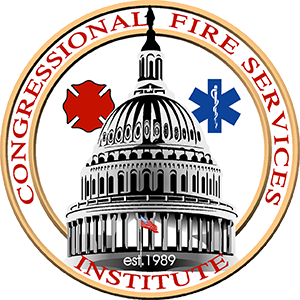White House Releases Fiscal Year 2018 Budget Proposal
(May 25, 2017) – On Tuesday, the White House released President Trump’s Fiscal Year 2018 budget proposal. The $4.1 trillion spending plan includes $44.1 billion in funding for the Department of Homeland Security.
The spending plan requests $688,688,000 for the Assistance to Firefighters and Staffing for Adequate Fire and Emergency Response grant programs, split evenly between the two programs. This is a slight reduction from the $690 million Congress appropriated for the programs in the current fiscal year. The budget proposal also requests $43,410,000 for the United States Fire Administration (USFA), with $1,497,000 of that request targeted for infrastructure improvements at USFA’s Emmitsburg, MD campus. Congress appropriated $44 million for USFA in Fiscal Year 2017.
While these programs only saw slight reductions in the Administration’s budget, several other programs of importance to the nation’s fire and emergency services were recommended for much more severe cuts. The spending plan only requests $27.513 million for the Urban Search and Rescue System, down from the $38.280 appropriated for Fiscal Year 2017.
The State Homeland Security Grant Program and the Urban Area Security Initiative (UASI) would both see a 25% cut if the President’s plan is enacted. The Administration is also recommending a 25% non-federal match be implemented for the two grant programs. The Volunteer Fire Assistance (VFA) grant program, which provides matching funds to volunteer fire departments to purchase equipment and training for use in wildland fire suppression, would be reduced from $15 million to $11.6 million under the plan.
“As the saying goes, the President proposes and the Congress disposes,” said Bill Webb, Executive Director of the Congressional Fire Services Institute. “Now that the White House has released its FY2018 budget proposal, we’ll turn our attention to Capitol Hill where we will advocate for sufficient funding levels for these programs. With call volumes rising across the nation and heightened concerns about potential threats to our safety and security, this is not the time to cut programs that benefit our nation’s fire service.”
The release of the White House budget proposal is only the first step in the Fiscal Year 2018 budget process. Committees in both the House and the Senate have begun holding hearings to review the budget proposal, and the House and Senate Appropriations Committees will now begin drafting funding bills for the individual departments of the federal government. CFSI will continue to provide updates throughout the Fiscal Year 2018 process.
